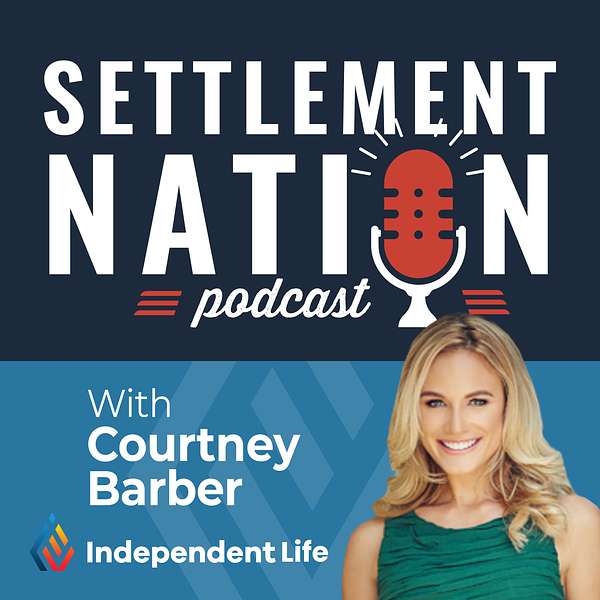
Settlement Nation
Conversations with leading trial lawyers and settlement professionals on topics ranging from advice and strategies from top trial lawyers, settlement planning for plaintiffs, tax planning for attorneys, and future innovations in the legal and insurance industries. Brought to you by Independent Life, the only plaintiff focused structured settlement provider, and hosted by Courtney Barber. The views, thoughts, and opinions expressed on the Settlement Nation podcast are those of the guests, and not necessarily those of Independent Life or its affiliates.
Settlement Nation
The Art of Settlement
This episode of Settlement Nation we chat with Jason Lazarus, a legal settlement services expert out of Orlando, Florida. Jason discusses several of the topics covered in his new book, The Art of Settlement, intended to help attorneys avoid mistakes when finalizing a settlement. If you are a personal injury attorney, this is a MUST listen for you and your legal team. Jason's book can be purchased here: https://geni.us/theartofsettlement
Thank you for tuning in to Settlement Nation, the premier podcast for high performers and trial lawyers.
Each episode of Settlement Nation dives deep into the world of trial law, offering valuable advice and strategies from leading trial attorneys, industry experts and thought leaders. As the creative mind behind the acclaimed podcast, host Courtney Barber ignites conversations that spark change and inspire action.
Tune in and discover the secrets to success, learn from the best, and join a community of driven professionals committed to justice.
Subscribe now and step into the winner’s circle with Settlement Nation —where high performance meets high impact.
Instagram
Sponsorships, Guests and Everything Podcast, Click Here.
